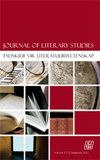《奇旺达诗选》中自我认同与(再)呈现的激荡
IF 0.1
4区 文学
0 LITERARY THEORY & CRITICISM
引用次数: 0
摘要
Tshivenda诗歌将自我和文化等各种概念作为主题。在这个主题中,对自我认同和(再现)自我或自我的自由的渴望作为反复出现的主题出现。为了便于分析,本文特意选取了10首齐文达诗进行分析。分析是基于一组预先确定的主题,即对身份和真实性的追求,存在和归属的概念,以及身份,记忆,家庭和文艺复兴的交集。本文采用了定性研究方法,并在理论上以非洲中心主义为基础。分析表明,齐文达诗歌揭示了殖民主义者和种族隔离倡导者提出的否定非洲人民自我和文化的元叙事。分析进一步揭示,原住民一直有表达自我和意识形态观点的方式,包括主动挑战关于他们的虚假霸权话语。这篇论文增加了正在进行的关于身份、归属的政治讨论,以及关于前殖民地在几十年的边缘化和压迫期间和之后如何坚持并仍然坚持他们的存在和代理的讨论。委员会建议,齐文达文学中所反映的非洲自我和文化的各个方面应成为非洲土著知识体系的一部分,需要在基础教育和高等教育机构中加以研究。本文章由计算机程序翻译,如有差异,请以英文原文为准。
Agitations for Self-Identification and (Re)presentation in Selected Tshivenda Poetry
Tshivenda poetry thematises varied notions of selfhood and culture, among others. Within this thematisation, longings for the freedom to self-identify and (re)present the self or selves show up as recurrent themes. For analytical convenience, 10 Tshivenda poems were purposively selected and analysed in this article. The analysis is based on a predetermined set of themes, namely, the quest for identity and authenticity, notions of being and belonging, and intersections of identity, memory, home and renaissance. The paper deployed a qualitative research approach and was theoretically undergirded by Afrocentricity. The analysis reveals that Tshivenda poetry demystifies the metanarratives propounded by colonialists and apartheid exponents to negate African people’s selfhood and culture. The analysis further reveals that the indigenes have always had ways to express their selfhood and ideological outlook, including agentively challenging false hegemonic discourses about them. This paper adds to the ongoing discourse on the politics of identity, belonging and discourses focused on how the formerly colonised asserted and still assert their presence and agency during and after decades of marginalisation and repression. It is recommended that aspects of African selfhood and culture captured in Tshivenda literature should form part of African indigenous knowledge systems that need to be studied in institutions of basic and higher education.
求助全文
通过发布文献求助,成功后即可免费获取论文全文。
去求助
来源期刊

Journal of Literary Studies
Multiple-
CiteScore
0.50
自引率
0.00%
发文量
0
期刊介绍:
The Journal of Literary Studies publishes and globally disseminates original and cutting-edge research informed by Literary and Cultural Theory. The Journal is an independent quarterly publication owned and published by the South African Literary Society in partnership with Unisa Press and Taylor & Francis. It is housed and produced in the division Theory of Literature at the University of South Africa and is accredited and subsidised by the South African Department of Higher Education and Training. The aim of the journal is to publish articles and full-length review essays informed by Literary Theory in the General Literary Theory subject area and mostly covering Formalism, New Criticism, Semiotics, Structuralism, Marxism, Poststructuralism, Psychoanalysis, Gender studies, New Historicism, Ecocriticism, Animal Studies, Reception Theory, Comparative Literature, Narrative Theory, Drama Theory, Poetry Theory, and Biography and Autobiography.
 求助内容:
求助内容: 应助结果提醒方式:
应助结果提醒方式:


